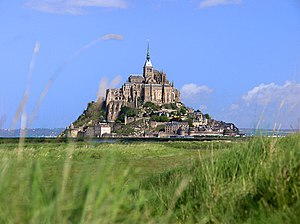ainatan said:
I'm really not able to fully understand that "real world medieval towns" as a parameter for anything in a fantasy setting. It should serve as an inspiration, but not as a strict rule or guideline, unless you really want a level of detail and fidelity with our medieval past, which clearly isn't and never was the point of D&D.
History has already asked the question of what happens when people feel like the outside world is hazardous, they have limited agricultural technology, and transportation is slow. The answer is they cluster together, and live as close to each other as they can. The pattern held true in places as far apart as Rome, China, India and Timbuktu (a real African city BTW).
For me, the problem with the way WOTC maps out cities is that they look like modern American suburbs. And that's anything but fantastic! If characters are to experience the energy and excitement of a city, it needs to have a dense population constantly interacting with each other. I propose that the historically accurate model creates more opportunities for adventure than the so-called fantasy one.
ainatan said:
People stick with the medieval concepts, but what about ancient civilizations as an inspiration? Greeks? Spartans are cool nowadays. They also had warriors and swords, and armors, and magicians and fanstatic monsters and amazing deeds of heroism and towns with farms and taverns.
I don't stick to medieval European ideas. But the Greeks had the same settlement pattern as later Europe. A central, very dense stronghold-city surrounded by farms. In fact, the Greek City-State model would be an excellent one for a POL setting.
ainatan said:
Robert Howard's works has always being with no doubt a source of inspiration for D&D, but Hyborian age is not medieval at all, it's inspired on it, but not bound to it.
The Hyborian age setting was a deliberate mish-mash of later real-world cultures, because Howard was creating a secret history for the Earth. Aquilonia was meant to evoke medieval France, for instance. In such a case, applying real-world urban models is not just appropriate, it's exactly what was intended.
ainatan said:
There was also no real medieval cities built with white stone on the side of a mountain with multiple layers, nor a village with small subterranean houses with big round doors. Between Tolkien and real world medieval europe, I choose Tolkien as my primary source of inspiration.
Italy, for one, contains numerous examples of villages and towns built on the sides and tops of mountains. I went to High School ( and gamed) with someone whose family came from a town in Calabria that was literally built on the side of a mountain. He showed me pictures, and I remember asking him how nobody ever fell off.
As for Tolkien, he would have preferred that you look to real-world Europe, It's exactly what he did when apprpriating names and cultures to populate Middle Earth!
ainatan said:
I can't remember any town built entirely on a lake, maybe there was, I dunno, anyway, if there was no Tolkien, and a designer proposed something like that, would we also complain arguing that's no such thing in our medieval past?
I would think of Venice, which is basically built on wooden pilings sunk into a lagoon. Other people have mentioned Tenochtitlan (now Mexico City). Of course, both those cities are currently sinking into the mud...
ainatan said:
"houses are spaced apart from each other, not built next to each other like in real medieval towns." OMG that makes no sense!!!
Sure it doesn't, it's D&D, not Medieval Adventures.
Yes, but IMHO the real-world model is more exciting and evocative of far-away times and places. Medieval London, with its winding narrow streets and hidden recesses, is just a more interesting place than a fantasy town laid out like modern Levittown! Also, I prefer to not have magic integrated into the ordinary human life of my Campaign, so that when the players encounter it they can still have a sense of wonder. The contrast between the mundane and magical is what keeps the arcane wondrous. If everything is fantastic, the fantastic just become the mundane. It's simple to pull that off; I use the explanation that human wizards are deliberately and selfishly trying to keep magic to themselves, to maintain their own power. No mighty Wizard, wielding the powers of creation itself, is going to stoop to making a perpetual flame just so the common rabble can have better streetlights!



